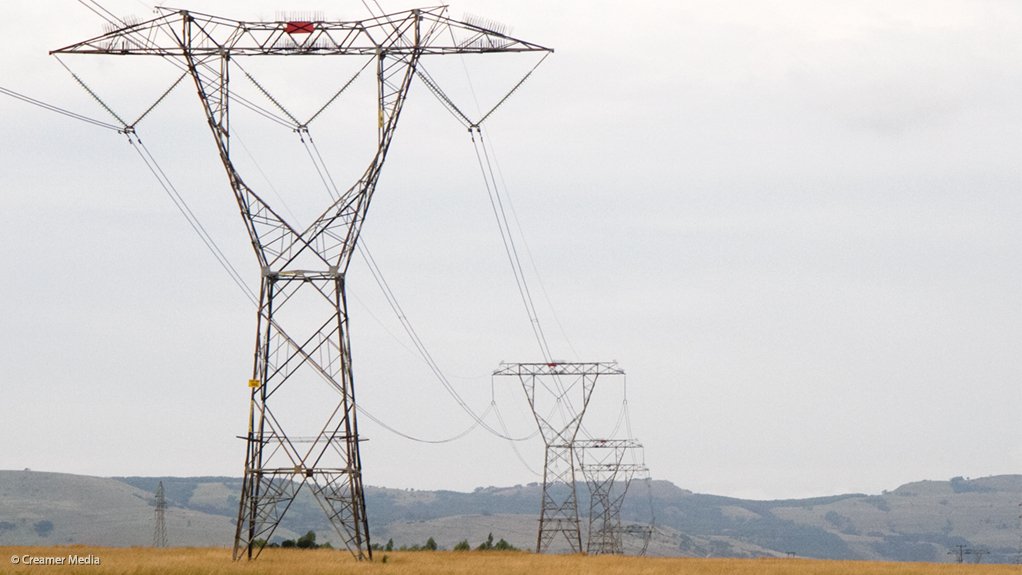The Energy Regulator announced on Thursday that Eskom’s tariff would rise by 9.61% on April 1, an increase that is less than half the 20.5% hike for which Eskom had applied.
The tariff decision includes allowable revenue of R250-billion, against the R293-billion for the year outlined in Eskom’s submission to the National Energy Regulator of South Africa (Nersa) in July last year.
Once converted into a retail tariff, the outcome is a surprise sub-inflation increase of only 3.49%.
The 6.12% balance is made up of legacy revenue decisions, including several regulatory clearing account determinations, which will be liquidated during the financial year.
The Energy Regulator which made the decision on February 24, a day ahead of the deadline set by the court to do so after Nersa initially rejected the Eskom submission in September last year, is the Nersa board and the structure legally responsible for allowable revenue determinations.
Full-time regulatory member for electricity regulation Nhlanhla Gumede said the allowable revenue approved by the Energy Regulator arose as a result of several adjustments to Eskom’s application.
The most significant of these was a R555-billion downward revision to the State-owned utility’s regulated asset base, which Nersa revalued to R703-billion against Eskom’s R1.3-trillion valuation.
The revaluation, which Gumede said was conducted as part of Nersa’s discretion when making revenue decisions, also affected the depreciation amount, with R42-billion approved for depreciation, instead of the R68-billion for which Eskom applied.
Nersa’s reversal of the negative return of -1.2% applied for by Eskom to “smooth the increase” fell well short in offsetting these two lower amounts; this even after granting Eskom a 1.08% return, which triggered a R22-billion swing in Eskom’s favour, from -R15-billion to a revenue amount of R7.5-billion.
Another significant amount disallowed related to Eskom’s application for R5.6-billion to address arrear debt.
Following consultations with various government departments, Nersa said it had been decided that the issue should be addressed outside of the regulatory framework so as not to penalise those who were already paying for their electricity.
Gumede said a “whole of government effort” was required to address this “real cost to Eskom”, especially given that many of those owing money were government departments and municipalities.
Nersa also reduced the amount that Eskom could recover from independent power producers (IPPs), mostly because electricity meant to be supplied from Risk Mitigation Independent Power Producer Procurement Programme (RMIPPPP) generators would not be introduced during the upcoming financial year.
This decision was reflected in a R9.5-billion reduction, to R43-billion, in the allocation to Eskom to pay for electricity generated by IPPs that has been procured by government.
A R5.9-billion decrease, to R80-billion, in what was approved for primary energy partly reflected the higher coal and diesel use that would arise to offset the absent RMIPPPP volumes.
The diesel amount approved was based on a load factor of 3.5% for the open cycle gas turbines, which is higher than the 1% initially applied for but below the 7% that Eskom argued was necessary to offset the risk of load-shedding.
Gumede said the “single-digit increase” sought to strike a balance between the needs of Eskom and those of the economy and consumers.
“Considering the state of our economy and the interests of consumers, the overall tariff increase for 2022/23 will be contained below 10%,” he added.
ESKOM TO STUDY FINANCIAL IMPLICATIONS
Eskom CFO Calib Cassim said that the financial implications of the decision on Eskom’s long-term sustainability would need to be further assessed once the reasons for decision were published – Nersa has 60 days in which to publish its reasons.
“The Eskom board will deliberate further before deciding on how to continue to sustainably provide electricity to the extent possible in the context of this revenue decision.
“In addition, Eskom keenly awaits the reasons for the decision that will provide further details on how the revenue determination was arrived at,” Cassim said.
The utility has, on several occasions, successfully challenged Nersa decisions in court, winning a major victory two years ago when the High Court ruled that the regulator had acted unlawfully by removing a R69-billion government equity injection from its allowable revenue.
To date, only R10-billion of that amount has been recovered through the tariff, with the R59-billion balance to be dealt with once Nersa’s Supreme Court of Appeal application on one aspect of the matter is finalised.
Nersa is not challenging the unlawfulness of its decision to remove the R69-billion but believes the High Court tariff substitution order breached Nersa’s legislated mandate to make such decisions.
EMAIL THIS ARTICLE SAVE THIS ARTICLE ARTICLE ENQUIRY
To subscribe email subscriptions@creamermedia.co.za or click here
To advertise email advertising@creamermedia.co.za or click here











